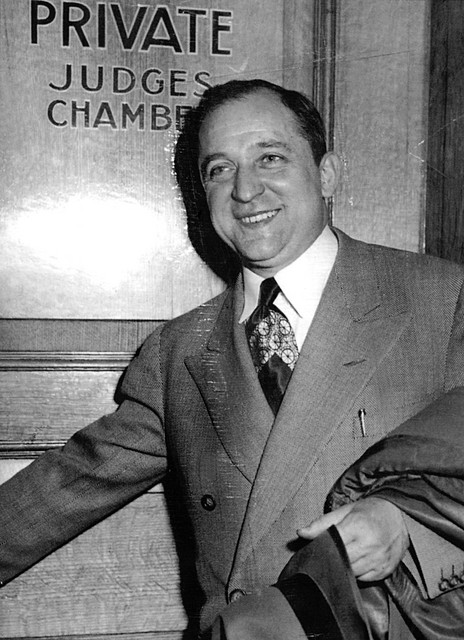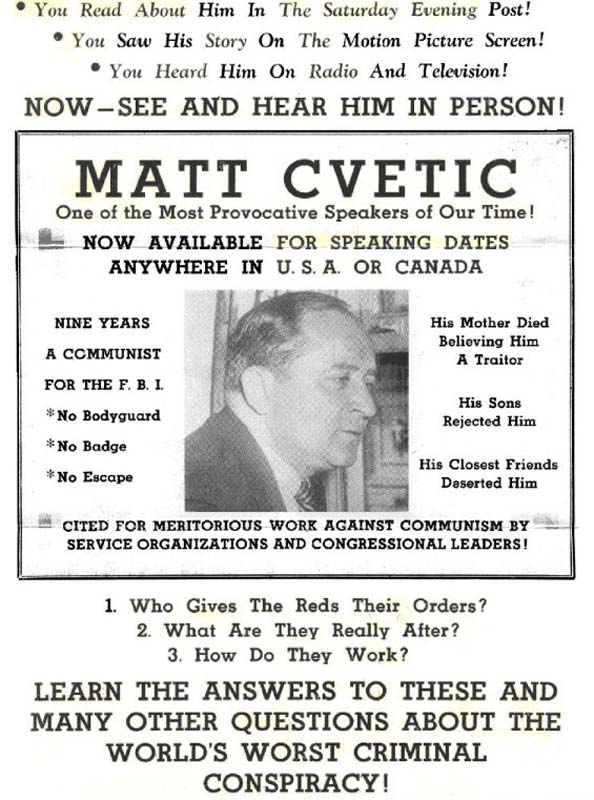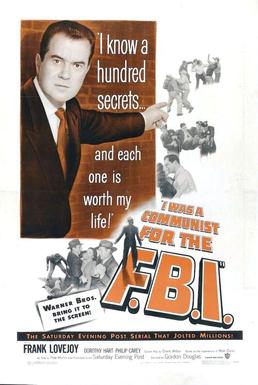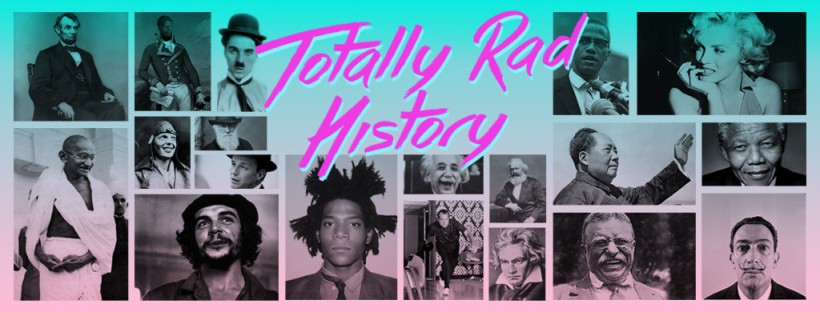*Originally published on RYOT.org on August 27th, 2015 by Sean Sawyer*
Today on #ThrowbackThursday, we bring you some Totally Rad History highlighting interesting figures that you may never have heard of. Today’s Totally Rad History highlights Matt Cvetic. The Pittsburgh-native lived quite the interesting life working as a spy inside the American Communist Party (CPUSA) for the FBI.
In 1931, Cvetic married Marie Dolores Barsh and together had a set of twin boys a year later. But these twins were brought into a broken home. Cvetic described his marriage as “a total failure,” and Barsh described her husband as “a total failure.”
Being called a total failure as a husband and father is a tough thing to say about someone, but it was the truth. Cvetic verbally and physically abused Barsh in front of his children, openly had relations with a number of other women, and could not financially support his family causing them to go hungry, often. Being financially unstable, Cvetic was forced to loan money from Barsh’s family. One instance in 1939, Cvetic was arrested for aggravated assault and battery for beating Marie’s sister when she asked about the return on a loan she had given the family.
Despite his horrible marriage and image, he drew interest from the FBI. Having previously worked in the U.S. Employment Services, a desire to serve his nation (he was rejected from joining the Army for being too short), and, most importantly, a knowledge of Slavic languages. Cvetic quickly agreed to the FBI’s offer and joined the Pittsburgh chapter of the CPUSA in 1941.
He worked hard at learning the ways of the communists and achieved membership into the party in 1943. Amidst his time in the FBI, he was sworn to secrecy about his role inside the FBI. To the public, Cvetic would be known as a member of the CPUSA. Because he was forced to give up his religion, a priest absolved Matt Cvetic of his holy obligations during his time in the FBI. While he was able to confess his role to a priest, he was still sworn to secrecy to his family.

Matt Cvetic enjoying his fame.
During his time in the CPUSA, he actively became an influential and active member of the party attending communist meetings, workshops, and social events. The FBI found his aggressive tactics within the party strangely proactive and J. Edgar Hoover even took notice requiring Cvetic’s handlers to be extra keen of his actions. But Cvetic was not corrupted by the CPUSA. Instead, he finally found something he could excel at.
During his time working for the FBI, he attended over 3,000 meetings and supplied the FBI with over 50,000 Communist documents. Soon after realizing how vital the information he was providing to the FBI, Cvetic started to demand higher wages. Originally starting out with $15 in weekly compensation, Cvetic soon raised his price to $85 weekly. But that was not enough. Cvetic wanted to be compensated at a rate of $100 a week for his information or he would quit. Hoover quickly denied his wish but Cvetic never quit.
Cvetic’s chaotic nature would soon return. Cvetic had taken a keen interest in Helen Newman, a young woman whom he started to court. Wanting to give marriage a second shot he started to intrigue her about a possible marriage, but her father would not approve of Cvetic, supposedly yelling “We don’t want any God-damned Communist in this house.” But because he desperately wanted Ms. Newman, he disclosed to the family about his role for the FBI, but the family did not believe his claim. In a desperate act, Cvetic asked for the help of his handlers to confirm his job, only baffling them and Director Hoover. At this point, Hoover was being advised to terminate Cvetic’s role with the FBI, but he declined because of the value of the intel he was bringing to the FBI.
The CPUSA wanted to relocate Cvetic from Pittsburgh to New York City, but Cvetic did not want to go. He wanted out of the CPUSA and the FBI and wanted fame. So before he could be shipped to NYC, the FBI decided to make him a key witness in trials against communists. His first testimony led to the Smith Act conviction of Steve Nelson, union leader and top Communist organizer in Pittsburgh.

After leaving the FBI, Cvetic became a national icon for his fight against the Communists in America.
Now, Cvetic gained the recognition for his work with the FBI that he had spent a long time yearning for. He then regained connection with his brothers, sisters, father, and children after they learned he was really a spy and not a communist. In 1950, Cvetic testified in front of the House Un-American Activities Committee (HUAC) and soon became a media sensation being claimed as an anti-communist American hero at the height of the Second American Red Scare. Cvetic’s life inside the CPUSA and FBI was turned into a radio serial that aired 72 episodes from 1952 and 1954. In addition, a film, I Was a Communist for the FBI, starring Frank Lovejoy was put to the big screen in 1951.
But Cvetic’s fame quickly ran dry. His chaotic nature came back to haunt him as he was labeled as a non-creditable witness for further government hearings. His testimonies started to contradict themselves, and the FBI became concerned with wild stories he told such as single-handedly foiling a Nazi spy ring plot. His anti-communist heroism began to die out with his reputation and the Second American Red Scare fading away.
Clinging to the last of his fame, Matt Cvetic ran for political office but lost in the Republican primary for Pennsylvania’s 28th district in 1954. After that he fell into a depression and was admitted to a psychiatric hospital twice in 1955 for his depression and alcoholism.
Matt Cvetic passed away on July 26, 1962, at the age of 53 from a heart attack he suffered while waiting to take his driver’s license exam.
You can read archives of Matt Cvetic’s documents at The Internet Archive, a non-profit online library.

The 1951 movie poster for “I Was a Communist for the FBI” starring Frank Lovejoy.
